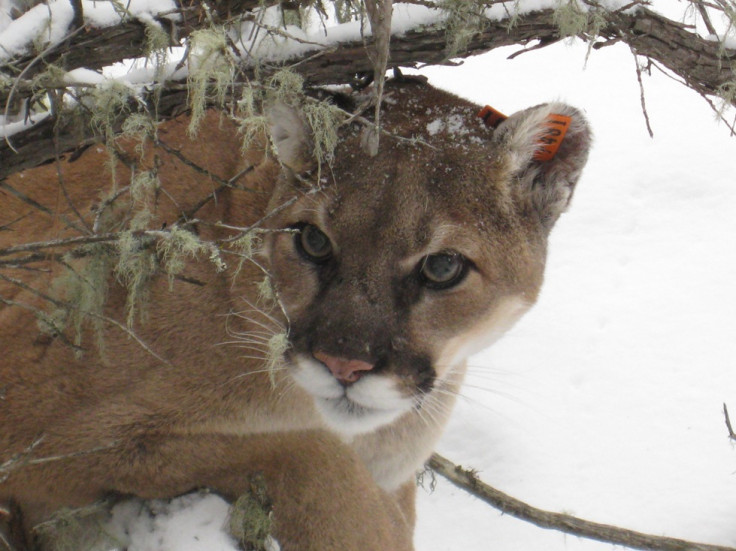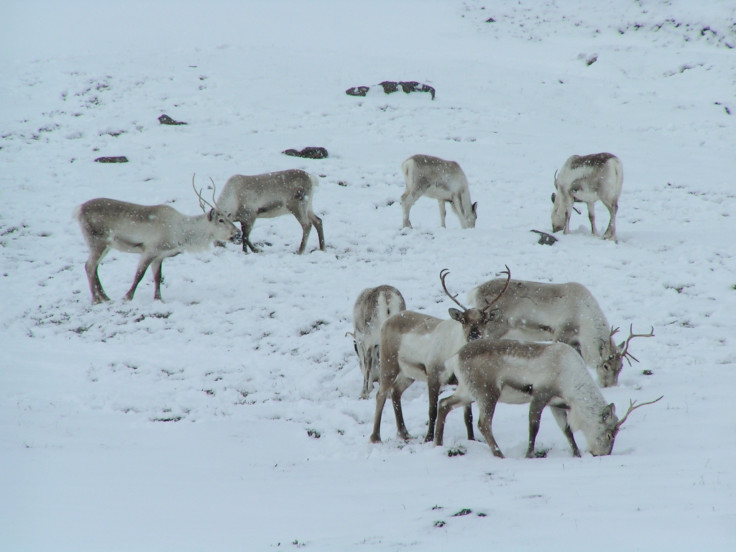Trump wants to scrap Nasa's Earth science research – polar bears, lions and reindeer could suffer
Nasa's Earth science research is looking vulnerable, and the species it monitors are looking worse.

Satellites are essential to understand the health of the Earth's wildlife, Nasa has said, soon after president-elect Donald Trump has threatened to scrap the agency's funding for Earth science research.
Bob Walker, a senior scientific adviser to Trump on Nasa told the Guardian in November that he considered such research to be "politicised science". Walker also said that doubt that humans are causing climate change "is a view shared by half the climatologists in the world".
But Nasa Earth science data is essential for the preservation of endangered species such as polar bears, mountain lions and reindeer, scientists said at a press conference yesterday (12 December) at a meeting of the American Geophysical Union in San Francisco.
Satellite data has been used to understand how populations of the threatened species are faring as the climate changes due to human activity.
The problems that if conservationists don't have enough information about it, they can't help to mitigate effectively. Scientists claimed that we would know much less about polar bears, mountain lions and reindeer if it weren't for Nasa's Earth-monitoring activities.
Woody Turner of the Biological Diversity Program at Nasa headquarters in Washington said: "The work discussed at today's press conference is emblematic of the many ways in which satellite remote sensing supports our efforts at natural resource management and wildlife conservation."
Polar bears
For example, a recent report projecting a decline of 30 per cent of the world's polar bear population relied on Nasa satellite measurements of Arctic sea-ice loss. Polar bears depend on sea ice for the majority of their activities, and less sea ice means polar bears struggle to meet their needs.
Scientists at the meeting also used examples of Nasa satellite data being used to monitor vulnerable mountain lion and mule deer populations in the US.
Read more: The world's polar bear population is on a knife edge – and set to fall by a third by 2050

Mountain lions and mule deer
"Measuring abundance of mule deer in the western United States is logistically difficult, hazardous and very expensive. For mountain lions, it's even worse," said David Stoner, a wildlife ecologist at Utah State University in Logan, Utah. Stoner used Moderate Resolution Imaging Spectroradiometer, flown on Nasa's Terra and Aqua satellites to monitor the populations indirectly via vegetation presence in their habitats.
"Measuring changes in vegetation is relatively easy and more affordable. With this research, we've provided a model that wildlife managers can use to estimate the density of deer and mountain lions, two big game species of great economic importance."

Reindeer
The dwindling global reindeer populations also could have gone unnoticed if it weren't for accurate historical and current satellite data, scientists at the meeting said.
"Reindeer populations are declining all over the world, in some places catastrophically; in Taimyr, there has been an about 40 per cent drop since 2000 and the herd is now at 600,000 animals," said Andrey Petrov of the University of Northern Iowa.
Petrov uses data going back to 1969 to keep track of present-day reindeer populations, as well as data from the Nasa/United States Geological Survey Landsat satellite programme.

Efforts to protect these species – and many of their less charismatic but equally vulnerable counterparts – could be put at risk if there is a lack of data to inform conservation projects. But it isn't just a concern for conservationists, Andy Purvis, a biologist at the Natural History Museum in London, told IBTimes UK.
"It isn't just an environmental concern and it isn't just about climate. To me, [Nasa's Earth science research] is simply the most cost effective way of getting high-quality data across the whole world.
"Humanity depends on what nature provides us with. These data give us the clearest data of that inventory. It's not only an environmentalist's concern, the data are actually important to anyone who wants to use the world and its produce."
© Copyright IBTimes 2025. All rights reserved.






















